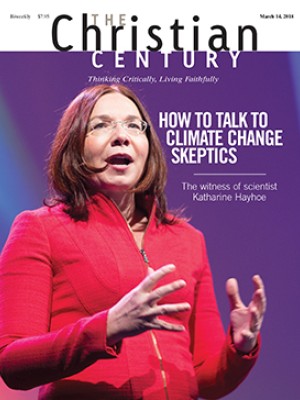Stressed-out Anglican priests turn to trade unions for support
Last year nearly 1,500 priests joined Unite, one of Britain’s largest unions.
Before he became a parish priest, the archbishop of Canterbury, head of the Church of England and the wider Anglican Communion, was an oil executive who helped run a major corporation. Being a priest was unquestionably more stressful, Justin Welby has said.
“It was isolated, insatiably demanding, and I was, on the whole, working without close colleagues,” he said. The role is, “for many, quite overwhelming and exhausting.”
This kind of pressure may well explain why increasing numbers of priests in the Church of England are seeking help outside the church for their problems. Faced with demanding congregations, piles of paperwork, and disciplinary procedures they often feel are unfair, priests are turning to trade unions for support.
Read our latest issue or browse back issues.
One of Britain’s largest unions, Unite, reports an increase of 16 percent in the past year in the number of Anglican parish priests, or vicars, joining its specialist faith worker branch. Nearly 1,500 priests, plus a few rabbis and imams, joined the union last year.
The Anglican vicars are joining despite not having the usual British employment rights because they are termed “officeholders” and cannot take their complaints to an employment tribunal. Nevertheless, as members of Unite they can seek counsel and support from others familiar with their travails.
According to Peter Hobson, who is head of Church of England Clergy Advocates, the branch of Unite for priests, vicars are turning to the union because they are under pressure from people in the pews and from bishops.
“In a consumeristic world, people expect you to deal with their needs instantly,” Hobson said. “And the bishop, while he is a pastoral figure, is also managerial. And the managerial approach is coming more and more to the fore.”
Hobson said this approach makes relationships between clergy and bishops more difficult, and clergy consequently need more advice from someone outside the church when there are tensions over the way priests are fulfilling their role. This is where a trade union such as Unite steps in.
While the pressures of being a priest are considerable in city centers, where churches are coping with transient populations, it is the rural vicars who are facing the toughest times, according to Hobson.
“In rural areas, more and more benefices are being run by one priest,” he said.
Sarah Jones, who is in charge of three benefices in the Hereford Diocese, joined the Unite union, finding it reassuring to have extra support.
“Most of us find that we do our best pastoral work when we are in tune with a particular community,” she said. “But if you have five or six communities to look after, it becomes very hard.”
Four priests in a similar situation to Jones in the most rural part of England are featured in a six-part television documentary series on British television, A Vicar’s Life. The series reveals the pressure of their roles.
“People nowadays expect and demand a quick response if they contact you,” Jones said. “There are some people who seem to feel free to express their anger to clergy in a way they would never do to someone else. They think we should turn the other cheek.” —Religion News Service
A version of this article, which was edited on February 26, appears in the print edition under the title “Church of England priests joining trade unions.”






